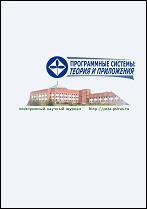|
This article is cited in 1 scientific paper (total in 1 paper)
Artificial Intelligence, Intelligent Systems, Neural Networks
Eventive vs. non-eventive sense of nouns: disambiguation using neural network approach
I. V. Trofimov, Yu. P. Serdyuk, E. A. Suleymanova, N. A. Vlasova
Ailamazyan Program Systems Institute of RAS
Abstract:
The paper addresses the issue of automatic disambiguation of event nominals. Such nouns account for a large proportion of event mentions in text and therefore are, together with verbs, of relevance to the task of event extraction. Since event-denoting nouns are often polysemous between ‘eventuality’ and ‘non-eventuality’ senses, disambiguation is a critical step in event recognition. We expect that the suggested disambiguation method will contribute to the accuracy of event extraction from text.
Lack of labelled data is a well-known impediment to machine-learning word sense disambiguation. To handle this problem, we used a semi-supervised technique. Two sets of unambiguous event- and entity-denoting nouns were created by hand (610 and 820 nouns resp.). From a large text corpus (PaRuS, 2.6 B tokens), we extracted 5 000 sentences per noun and split this set of contexts into two disjoint subsets: the validation set (contexts for 20 event-denoting nouns and 20 non-event nouns) and the training set (contexts for the rest of the nouns). We used the training set to train eight neural network classifiers of different architecture (MLP, CNN, RNN, BERT+MLP). For evaluation of this method, we tested the trained classifiers on the Russian Event Noun Disambiguation Test Set. The BERT-based model achieved the highest average accuracy of 84.8 %.
Key words and phrases:
detection of events in the text, resolution of lexical ambiguity, neural network, natural language processing.
Received: 14.10.2020
12.11.2020
Accepted: 28.11.2020
Citation:
I. V. Trofimov, Yu. P. Serdyuk, E. A. Suleymanova, N. A. Vlasova, “Eventive vs. non-eventive sense of nouns: disambiguation using neural network approach”, Program Systems: Theory and Applications, 11:4 (2020), 31–53
Linking options:
https://www.mathnet.ru/eng/ps374 https://www.mathnet.ru/eng/ps/v11/i4/p31
|

| Statistics & downloads: |
| Abstract page: | 114 | | Full-text PDF : | 82 | | References: | 23 |
|




 Contact us:
Contact us: Terms of Use
Terms of Use
 Registration to the website
Registration to the website Logotypes
Logotypes








 Citation in format
Citation in format 
